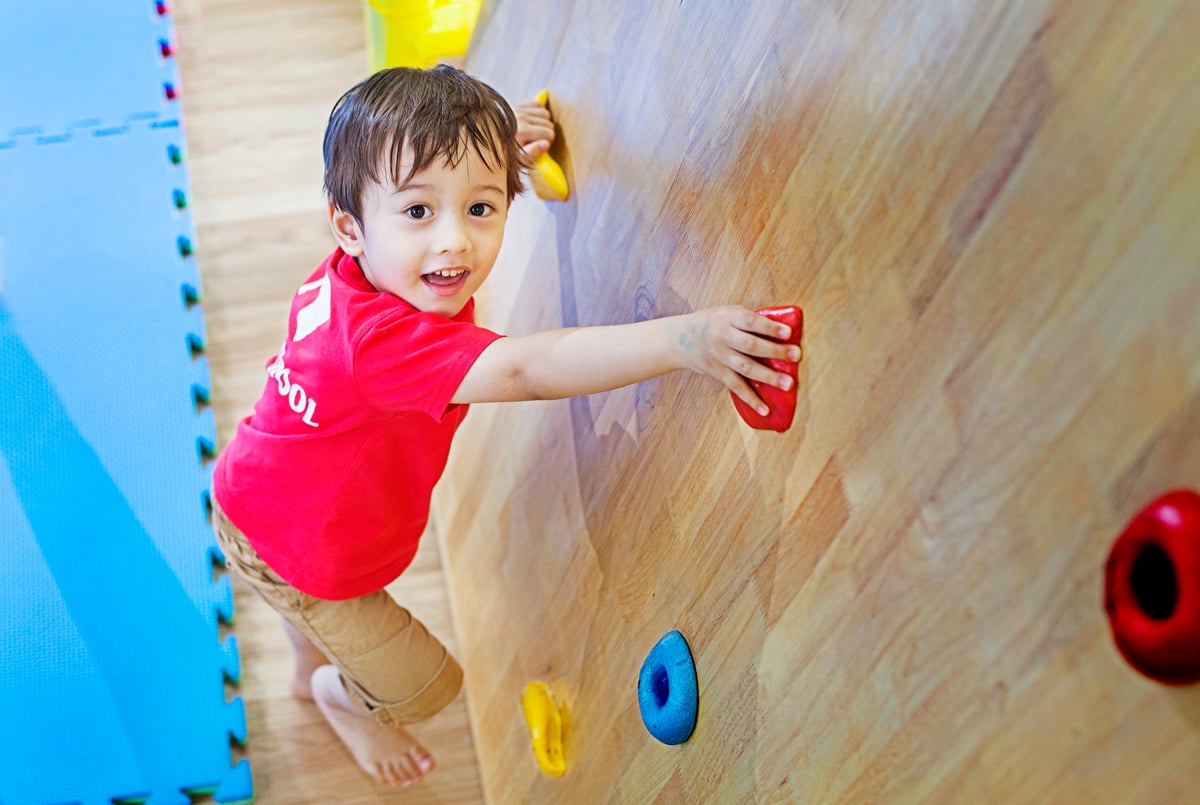What should parents do when teaching children about “Courage”?
As one of the important must-have qualities in life, courage helps children expand exploration capabilities, build self-esteem and develop many other necessary qualities. When we understand courage deeply and correctly, we know that children can be trained to develop this quality from very small things in daily life.
WHAT IS TRUE COURAGE?
1. Stepping out of your comfort zone
Courage helps children experiment in new areas even when feeling nervous or anxious, areas such as learning to ride a bike, making new friends, trying a new dish, or playing a new game. When stepping out of the comfort zone, most children will need encouragement as well as parental guidance to be able to persevere, make an effort, or try again even if they fail repeatedly.
2. Choosing to do the right thing
Choosing to do the right thing sometimes takes a lot of courage, even if it’s simply choosing to be “hard-working” instead of being “lazy”. Courage also helps children in choosing to “speak up”, even in difficult situations such as standing up for another child who is bullied. In addition, children will also learn how to say “no” properly. Because in this increasingly open world, children tend to please others and do not have healthy boundaries, saying “yes” even though they know that it is not a good thing to do, such as when being tempted by friends.
3. Admitting mistakes
Acknowledge their mistakes, for example when breaking a neighbour’s window while playing football, requires children to apologize and help with the cleanup. It’s also an expression of courage.
4. Being honest about their feelings
In a world where information technology and social networks are growing intensively, children tend to pay more attention to “appearance” without tending to their real feelings. Embracing true feelings also takes courage. It is also important for children to understand that courage is not sometimes about putting their fears aside, because that will cause fear to be suppressed negatively. Above all, courage is also about being calm in the face of fear and stepping out of their comfort zone gradually and positively.
5. Asking for help
It also shows courage to speak up for one’s needs. The child also needs to know that he/she does not have to face all difficult situations on his/her own.
HOW PARENTS CAN HELP THEIR CHILDREN TRAIN FOR COURAGE
Parents are the first and most important teachers of their children and have a strong influence on their children’s development. So, parents can:
1. Explain to your child the Truth about “Courage”
In life, when encountering situations that demonstrate the “Courage” qualities of each person, parents can use them as examples for the children to learn. Parents can also use stories, news, TV shows, movies, or books as tools for children to learn this quality.
Some suggestions for parents: The booklet “Scared Squirrel” is a story about teaching courage in a funny and interesting way, or “Home Alone – Stay Alone” is a very famous movie on this topic. Reading books or news, or watching movies together with your child and explaining things to them will make your child receive knowledge in a more natural and interesting way.
2. Use everyday situations to train your children to be courageous
Encourage and motivate your child in everyday situations, such as:
– Participate in a new class or experiment in a new skill
– Continue to practice skills and perseverance even if good results have not been achieved immediately
– Help them refuse to go with their group of friends knowing that they will do something wrong or dangerous
3. Praise children every time they show courage
Children have a great need for recognition, especially from their parents. So praise from even the smallest things will make them more and more confident to develop courage.
4. Help your child see mistakes as learning opportunities
Each “mistake” brings a lesson. It is important that the child learns something after each mistake. Creating a positive atmosphere when children make mistakes will encourage them to face and acknowledge their mistakes openly and honestly. At that time, children become more receptive to the lessons that their parents teach them so that they can improve themselves for the better.
5. Be a resource and inspire your child to have the right courage
Everyone, especially children, will show better courage knowing that they are not alone and that someone is by their side. Therefore, make your child feel safe and accompanied on this learning journey. And it’s important that you become a source of inspiration, an example for your child to truly understand and develop this quality properly.







